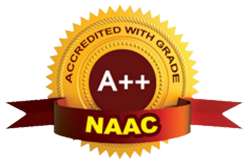A New Programme, PGDDRRM is intended to enhance the career prospects of learners/students; and make the nation safer and resilient to disasters. This Programme is based on a multidisciplinary approach, which is designed to address the increasing threats from natural and human-induced hazards, aiming to make our nation safer and more resilient while enhancing the career prospects of learners. The Programme comprehensively cover various aspects of disaster risk reduction and management, including an internship component aligned with the National Education Policy, 2020. The Internship/field-based Project is significant for practical experience, as Disaster Risk Reduction and Management is a crucial field that requires skilled professionals. In this context, learners/students will gain comprehensive knowledge and hands-on experience in disaster risk reduction and management, preparing them for current and emerging job opportunities. The flexibility in learning facilitates students to study at their own pace, accommodating their schedules and enhancing their learning experience.
The major objectives of the Programme are to:
• Provide comprehensive knowledge and practical experience to the learners on disaster risk reduction and management;
• Support and orient the learners towards practical experience and research; and
• Prepare the learners for the current and emerging job opportunities.
Target Group
In addition to students, the PGDDRRM Programme shall cater to the needs of the following target groups:
• Government and NGO functionaries
• Military, para-military, police, home guards, and civil defence personnel
• Academicians, geologists, scientists, meteorologists, engineers, journalists, and officials from public sector undertakings and corporate sectors
• People’s representatives, rural development functionaries, primary health centre functionaries, relief workers, social workers, environmentalists, and more.
Learning Outcomes
At the end, on completion of this Programme, learners will be able to:
• Apply research and analytical skills in decision-making;
• Use tools for meeting emergency medical requirements;
• Employ Spatial Data, Geographic Information System, and Remote Sensing in hazard, vulnerability and risk assessment;
• Develop new skills required for government officials, voluntary activists, development professionals, and elected representatives for effective disaster risk reduction and management.
• Demonstrate the skills of organising, planning, controlling, team-building and leadership through effective communication and presentation to become a successful professional;
• Develop case studies on best practices in disaster risk reduction, which will contribute to developing professionals in the field of Disaster Risk Reduction and Management; and
• Explain measures to generate community awareness to enhance people’s participation, and strengthen institutional mechanisms for disaster risk reduction and management.
Programme Coordinator:
Prof. Durgesh Nandini
Email: dnandini@ignou.ac.in
Ph. No. 011-29572736



